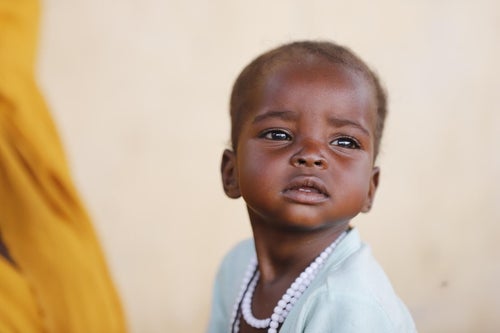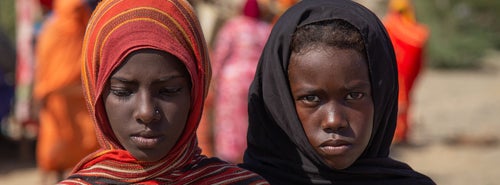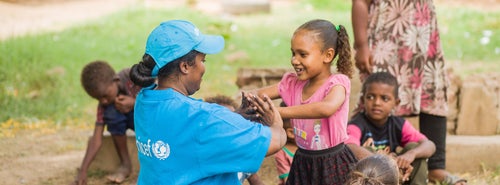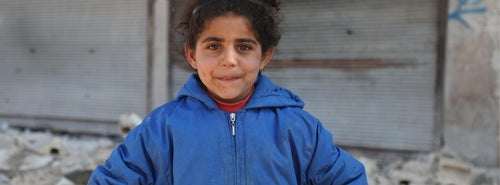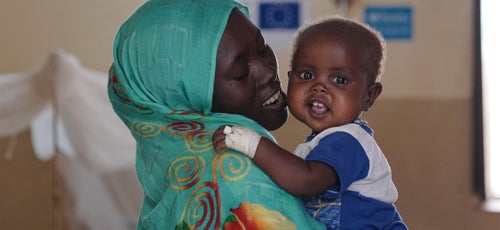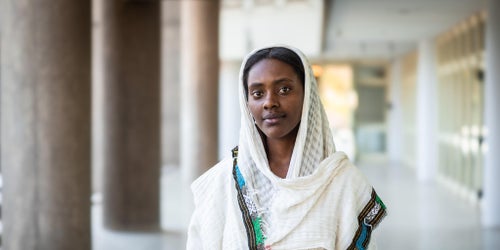Sudan Famine Crisis
Famine confirmed in Sudan’s North Darfur, threatening the lives of over 400,000 displaced people in the Zamzam Camp, reflecting the devastating situation for children around the region.
The declaration of famine is an extremely rare event. People, including children have already started dying of hunger and related conditions including malnutrition and infection.
The situation remains critical across the whole country, with an estimated 13 million people facing acute levels of food insecurity, and more than 3.7 million children under five expected to suffer severe acute malnutrition (SAM) this year, the most life-threatening form of malnutrition.
Children caught in this catastrophe need us more than ever. Please donate today.
Sudan: the biggest child displacement in the world
On the southern edge of the Sahara Desert in Africa’s northeast, Sudan is a beautiful blend of cultural traditions from Africa, the Middle East and the Mediterranean – and the land is as uniquely diverse. But despite the country’s natural beauty and historical significance, Sudan is scarred by political instability, economic hardship and civil war.
Today, Sudan is experiencing a war where children are paying the heaviest price; violence, trauma, displacement and devastation. Millions have been forced to flee their homes, many into neighbouring countries such as Chad, Ethiopia and Egypt, making Sudan the biggest child displacement crisis in the world. The conflict is also pushing the country towards famine and a catastrophic loss of life, yet, Sudan has barely made international headlines. But there is hope.
Alongside our partners, UNICEF remains in Sudan and neighbouring countries, supporting children and their families with lifesaving services and supplies.
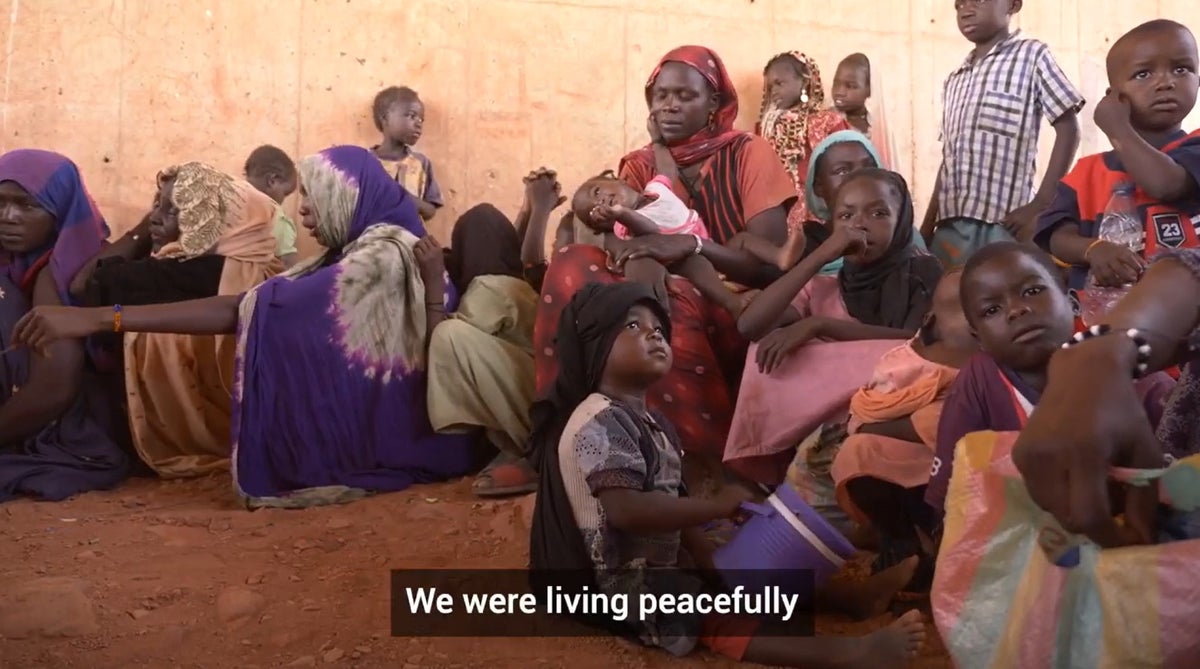
Families in Sudan flee to neighbouring countries.

UNICEF Statement
Children as young as one reported among survivors of rape during Sudan’s violent conflict
Armed men are raping and sexually assaulting children, including infants as young as one, amid the nationwide conflict rippling across Sudan.
Data compiled by gender-based violence service providers in Sudan paint a searing picture of the crisis children are being subjected to; 221 rape cases against children were recorded since the beginning of 2024. These figures represent only a small fraction of total cases. Survivors and their families are often unwilling or unable to come forward due to challenges accessing services, and frontline workers, fear of the stigma they could face, the fear of rejection from their family or community, the fear of retribution from armed groups or fear of confidentiality breaches.
Where is the war in Sudan?
Fighting began in Khartoum, Sudan's capital city, and has spread across the country, leading to destruction, devastation and mass displacement.
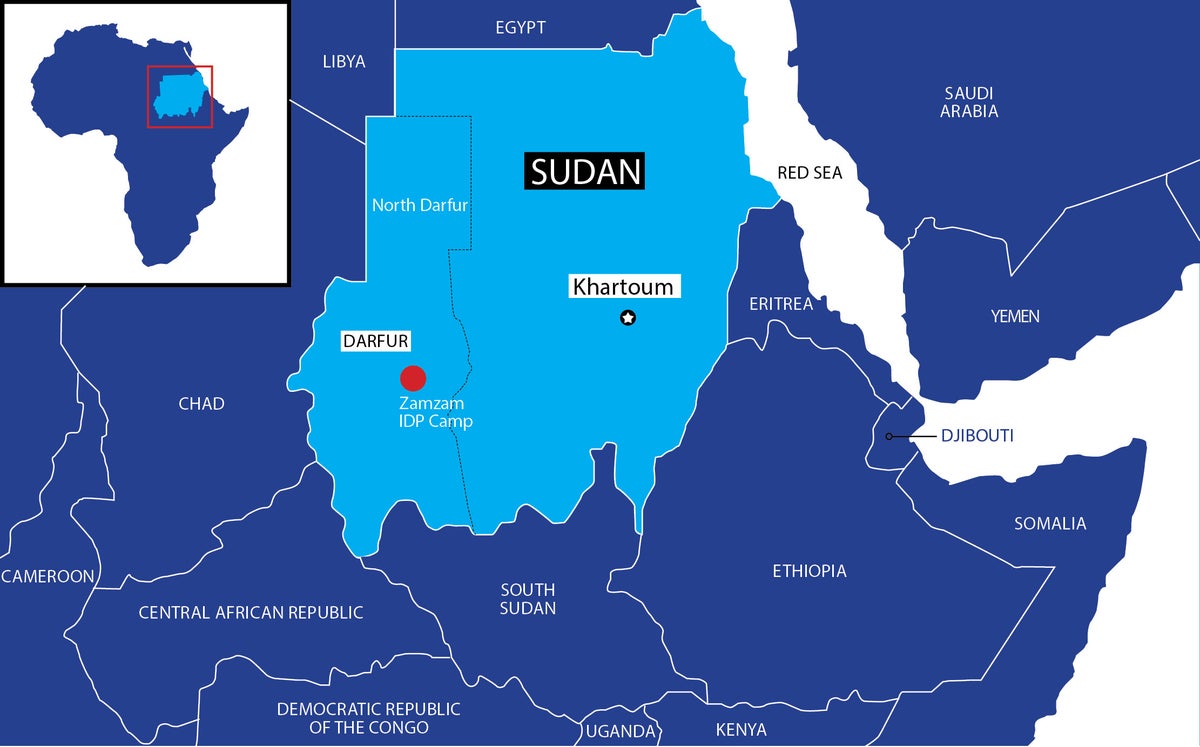
The cost of the Sudan crisis on children
Since the conflict escalated in April 2023, the impact on the lives of Sudan’s children has been immense.
14 m
nearly 14 million children, or half of the children in Sudan, are in need of humanitarian assistance.
5 m
over 5 million children have been forced to flee their homes – a staggering average of 10,000 girls and boys displaced every single day – making Sudan the world's largest child displacement crisis.
90%
over 90 per cent of schools across the country are closed, and more than 17 million of the 19 million school-aged children are out of school.
8.1 m
over 8.1 million people experiencing emergency levels of food insecurity, with parts of Sudan already experiencing famine.
Before the war: Sudan’s many challenges
Before the conflict escalated in April 2023, Sudan was already experiencing a humanitarian crisis with 15.8 million people—about a third of the total population—requiring humanitarian assistance, fuelled by disease outbreaks, economic and political instability and climate emergencies. Floods and droughts have devastated crops and livestock, and since the Darfur Crisis in 2003, Sudan has become home to over a million refugees from South Sudan and Ethiopia. Sadly, generations of children have grown up knowing nothing but conflict, as families have been enduring multiple civil wars and ongoing fighting since 1955.
How is UNICEF helping?
Since the onset of the latest crisis in 2023, UNICEF and our partners have reached millions of children and their families with safe drinking water, lifesaving healthcare and nutrition, child protection services, and psychosocial support. We have established safe learning spaces and continue to advocate the immediate reopening of schools where safe and possible.
In response to the escalating food crisis, UNICEF is expanding treatment services, including providing lifesaving services through 70 mobile teams. But we need your help to deliver for every child.
8.1 m
UNICEF and partners reached over 8.1 million children and families with safe drinking water.
4.8 m
In 2024, UNICEF and partners provided malnutrition screening to 4.8 million children (including lifesaving treatment for 260,000 children.

Donate to Sudan Famine Crisis
Children are in desperate need of lifesaving support. Plese donate today
Stories from Sudan
Every child has the right to be healthy, educated, and live safe from harm.




